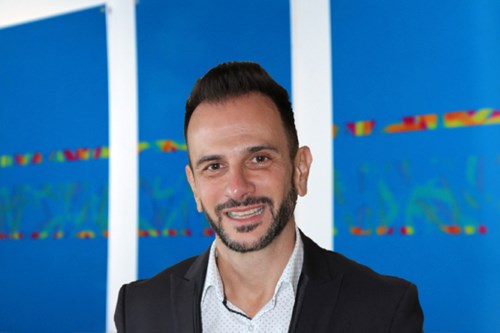According to Gallup, 77% of the global workforce are disengaged at work with 41% reporting high levels of daily stress. Constant comparison, high expectations, and a lack of recognition or feedback can challenge employee confidence. Add to that, the dynamics of hybrid working, job insecurity, perfectionism and self-doubt, and it becomes clear why so many people are seeking ways to stay motivated and energised. The low morale of just one or two individuals can quickly spread and negatively affect the entire team.
On the other hand, when employees are energised and motivated, they are not only happier and healthier but also more engaged in their work, leading to higher levels of creativity, problem-solving, and commitment to company goals. This positive energy is infectious, fostering a collaborative work environment, where teams are more likely to support one another and work toward common objectives.
Recognise when your team’s energy and wellbeing need a boost. Step back and assess the situation. Are team members disengaged or hesitant to share their ideas? Is there a lack of enthusiasm during meetings? Pay attention to the signs that the team needs an emotional lift.
Instead of dwelling on challenges, shift the focus to what’s working well. Avoid overanalysing or blaming and concentrate on ways to boost energy and morale. This doesn’t mean ignoring problems but rather approaching them with an optimistic mindset. Turn those limiting beliefs into support ones.
One powerful way to energise your team is by reframing challenges. Take a task or situation the team is currently facing and look at it from a new angle. What can the team be thankful for in this situation? By focusing on the “gain” rather than the “gap” (i.e., what’s been achieved rather than what’s still lacking), you help the team see their progress. For example, if the team is 80% of the way to achieving a goal, celebrate that achievement rather than fixating on the 20% that’s still left to do.
Encouraging self-awareness is key to fostering a more cohesive and confident team. Tools like Insights Discovery can help team members understand their strengths, limitations, and how their behaviours impact others. When individuals are more self-aware, they can better align their actions with team goals, communicate more effectively, and contribute more positively to the work environment. Additionally, self-aware employees are more likely to recognise their own blind spots, enabling them to grow and improve both personally and professionally.
Make it a habit for team members to express appreciation for one other. At the start of meetings, ask everyone to share something they appreciate about a colleague. These small acts of recognition can be surprisingly powerful, as people often aren’t aware of the positive impact they have on others. Gratitude boosts self-esteem and fosters a sense of belonging, which in turn helps people feel more engaged and motivated.
For teams to thrive, they need a culture of trust and authenticity. Encourage team members to speak their minds and share their true thoughts without fear of judgement. When people feel safe to express themselves, they’re more likely to contribute meaningfully and bring their best ideas forward. This openness creates a positive feedback loop, where the team becomes more cohesive and resilient.
Don’t wait for the big successes to celebrate. Acknowledging small wins along the way helps maintain motivation, even during challenging times. It keeps the team focused on progress, which is especially important when the road ahead seems long. At Insights we look at the motivators and blockers for different psychological preferences when it comes to motivating people and celebrating wins. For example, people leading with what we call a Sunshine Yellow Energy may prefer public praise, while the polar opposite (people leading with Cool Blue) may prefer a certificate or private endorsement instead.
Social occasions create community and trust, central to a team’s success. Creating space for fun and light-hearted moments, including social events, can do wonders for team morale and cohesion. When team members enjoy each other’s company, they’re more likely to collaborate effectively and communicate openly. Fun doesn’t just boost happiness; it fosters creativity, breaks down barriers, and makes the workplace more enjoyable.
Encouraging a culture of continuous learning helps keep the team engaged and motivated. When team members feel they’re growing and developing, it enhances their sense of self-worth and job satisfaction. A commitment to learning keeps the team adaptable and forward-thinking, making it easier to navigate challenges and seize new opportunities together. Developing a culture that empowers individuals more creativity and control over their learning will improve employee engagement. Again, thinking about preferences can help. At Insights we seek to understand how we can motivate individuals by customising learning opportunities based on their preferences. As an example, introverted feelers (leading with Earth Green) might prefer Reflective Practice and value-driven learning as opposed to their opposite type (those leading with Fiery Red – the extroverted thinker) who might prefer learning around Productivity and Problem Solving
Incorporating these practices into your ways of working, you can help your teams feel more connected, valued, and energised; even when times are tough. A team that’s more resilient, innovative, and ready to tackle whatever comes next, is a driver for peak performance. In a workplace where everyone’s cup is regularly refilled, happiness and wellbeing naturally follow.

By Marco Favaloro, Head of Asia Pacific